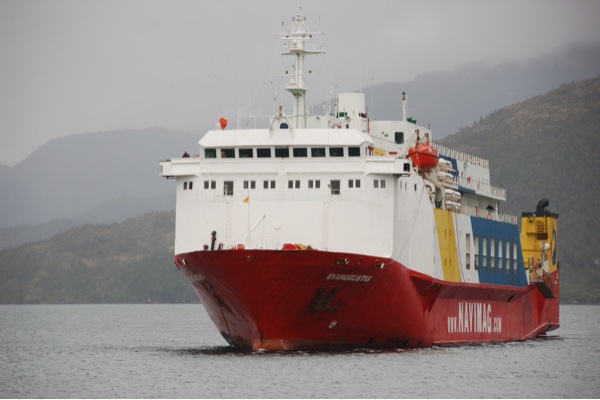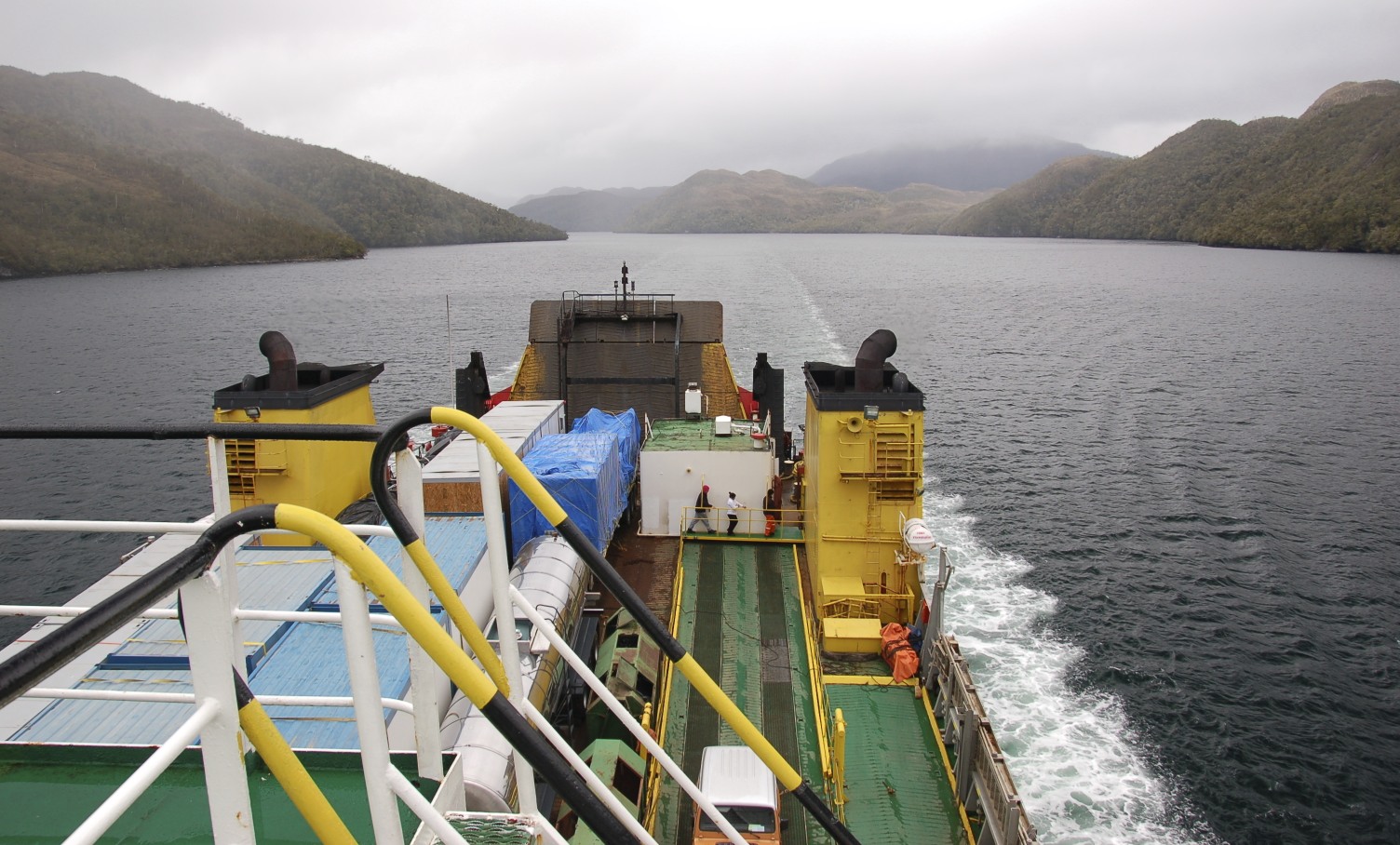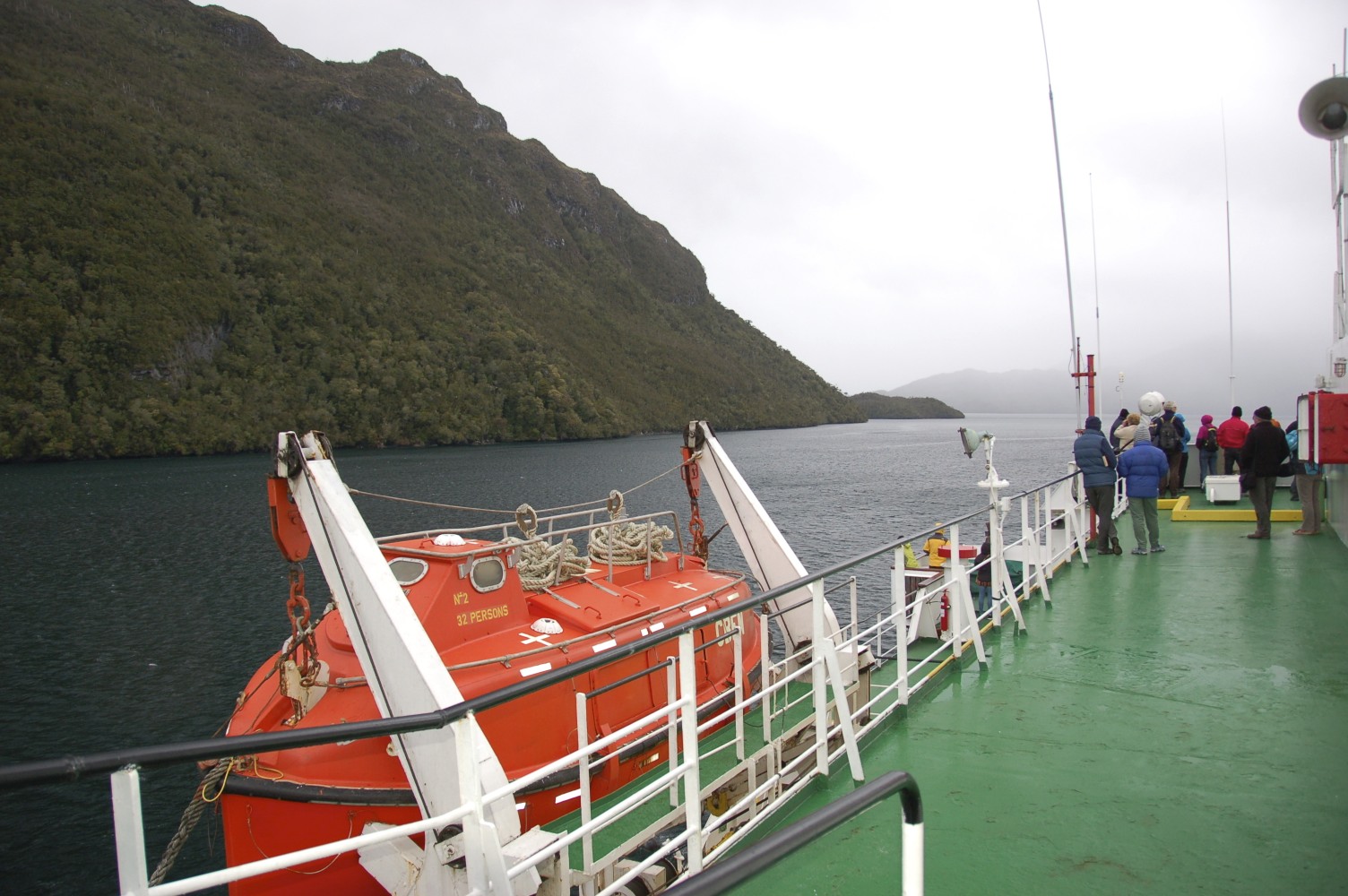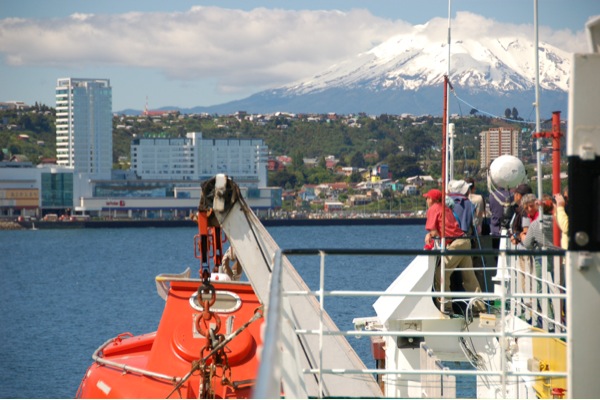
The boat we are on is a cargo ship retrofitted to carry passengers. Its exterior furnishings, the railings, staircases, and benches, are all built of cast iron and wood. “Be careful not to slip and bang your head,” the captain warns us as we board. He is a round man with a beard and a German accent. “We are taking you on a cruise,” he continues, his voice projecting over the heads of the passengers gathered around him, “but this is still a cargo ship.” “It makes you think that a boat is a very utilitarian thing,” my father comments, examining the trailers in the cargo bay as we ascend the stairs to our quarters, “or at least this one is.”
Only a few hours out of Puerto Montt, the last settlement before the slender strip of land that is Chile breaks into a scattering of islands stretching south, the sky turns grey, and a pale mist obscures the horizon. Rain spatters the windows of our boat, accompanied by a wind that blows the hats from passengers’ heads and sends them sailing aftwards. Whenever the doors of the lounge open now, a billow of salty air enters, chilling those seated nearby.
Whether it’s the hypnotic one-two beat of walking, the sudden lurch of a plane at takeoff, or the swerve of a car as it turns, each form of transportation has its own sensations. In calm waters, I feel the chug of the diesel engine, which causes the entire boat, from the bathroom mirrors, to the chairs in the cafeteria, to vibrate slightly. In rough waters it rocks, sometimes from side to side, and other times from front to back, moving to the rhythm of the sea.
While the surrounding islands, forested and silent, show no signs of habitation, the boat itself is filled with the chatter of passengers. The young gather in the cafeteria and listen to music as they play cards. Several older passengers sit in pairs, conversing sedately, while others sit alone, with a book or a diary in their hands. The ship’s crew, who wear blue coveralls, work in silence, except for occasional moments of banter that suggest the camaraderie they must enjoy behind the doors that read, “Crew Only Beyond This Point.”
As passengers are brought together by proximity and purpose, a boat can quickly become a community. Among the sailors crewing Magellan’s ships, which sailed these waters almost five centuries ago, their common goal was to circumnavigate the globe, a feat never before achieved. We are here for a less impressive reason: to be awed by the archipelago of southern Chile, and take pictures of its mountainous islands to accompany the stories we will bring home.
Perhaps this is why sea vessels are so prevalent among metaphors that represent our position in life. From the common saying, “Don’t rock the boat,” with its implication that we are in this together, to this poignant passage from the Great Gatsby, “So we beat on, boats against the current, borne back ceaselessly into the past," the voyage by sea succinctly captures our journey through life.
Which makes me think of what tremendous endeavors these voyages were for ancient humans. They had no diesel engines, navigational computers, nor airtight hulls. With boats built by hand, they intrepidly faced the immensity of the sea, whose opaque waters might have contained anything, from the most unimaginable monsters, to the most unexpected treasures.
For many cultures, the boat became more than just a means of conveyance across water. Some northern European peoples set their dead adrift in ships that were lit afire before disembarking. In the Philippines, many tribes believed the afterlife was a paradisal island reached by sailing a boiling sea. If you had been wicked, your boat would tip, and you would be scalded eternally in the bubbling waters. What all of these represent, from the most common sayings, to the most sacred myths, is that the voyage by sea is a fundamentally human undertaking. We enter a boat, and then, upon loosing our moorings, we separate ourselves from the known world, becoming a cluster of people sailing across the waters, with only the mysteries of the sea below us, and the wonders of the sky above.
 Sunday, November 27, 2011 at 10:10PM
Sunday, November 27, 2011 at 10:10PM 

 Chile,
Chile,  Navimag,
Navimag,  Patagonia,
Patagonia,  Puerto Montt,
Puerto Montt,  Puerto Natales in
Puerto Natales in  Travel
Travel 


